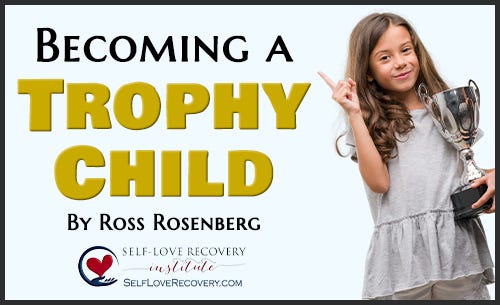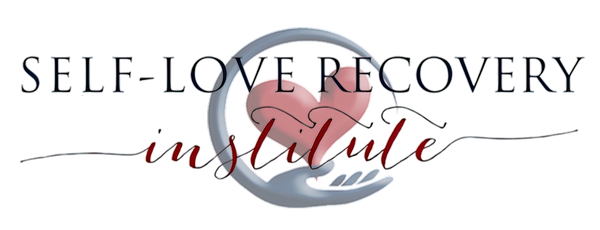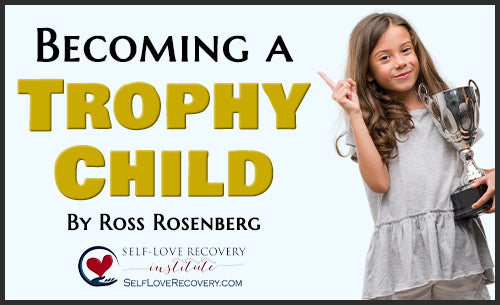 Written by Ross Rosenberg, M.Ed., LCPC, CADC
Written by Ross Rosenberg, M.Ed., LCPC, CADC
Self-Love Recovery Institute — President/CEO
Psychotherapist, Educator, Author, Expert Witness
As much as we would like to, we cannot avoid certain indisputable immutable facts of life: We will have to pay taxes, we will get older, we will most likely gain a few pounds, and we will always be connected to our childhood. Sigmund Freud was right, we are, indeed, creatures of our past; affected more by our formative years than by recent events and circumstances. Although genes play a significant role in determining our adult selves, how we were cared for as a child is integrally connected to our adult mental health and the quality of our adult relationships. Whether we embrace our unique childhood history, or if we try to mute, forget, or even deny it, there is no way of refuting its impact on our lives.
If you were fortunate, you may have had a childhood that was absent of major trauma, abuse, deprivation, or neglect. As one of the fortunate ones, you would have had parents who made mistakes, but who also unconditionally loved and cared for you. Just by being yourself, despite your imperfections, you would have proved to your parents that all babies are perfect, and the gift of life is sacred.
Your healthy but not perfect parents would have been intrinsically motivated to foster your personal and emotional growth, not because they had to, but because they believed you deserved it. The only requirement to receive your parents’ love and nurturing was to just be your genuine self. Consequently, you would have become a part of a multigenerational pattern of emotionally healthy children; you would have become a balanced and emotionally healthy adult. If you chose to have children, you would perpetuate the positive parenting “karma” by raising your own emotionally healthy child. Unfortunately, this was not my experience.
The child of psychologically unhealthy parents would also participate in a similar multigenerational pattern; one, however, that is perpetually dysfunctional. If one of your parents was a pathological narcissist, you would have been born into this world with specific expectations determined by that narcissistic parent. And, if you could figure out what those expectations were, and could deliver on them, then you would have figured out how to motivate your narcissistic parent to nurture and love you. If you kept in synch with your parents’ narcissistic fantasies, you would be the grateful recipient of conditional love and conditional attention.
By molding yourself into a “trophy child,” you may have found a way to be hurt less, but it would have come at an unimagined cost. Although your “trophyness” saved you from the darker and more menacing side of your narcissistic parent, it would have deprived you of emotional freedom, safety, and happiness. Relaxing and enjoying the wonders of childhood would never be yours. Your comfort in sacrificing and being invisible would eventually coalesce into adult codependency, which would compel you to replay your childhood trauma in the people with whom you choose to be intimate.
However, if you were unable to be your parents’ “trophy child,” you would trigger their own feelings of shame, anger, and insecurity, which they would project onto you. As the “bad seed” child who is incapable of assuaging your narcissistic parent’s unconscious but huge reservoir of toxic shame, you would likely be punished with deprivation, neglect, and/or abuse.
The nightmarish quality of your childhood would require you to find the biggest psychological boulder under which you will permanently hide your agonizing memories. Your lonely, deprived, and/or abusive childhood would lay the foundation of a potentially permanent mental health disorder that would compel you to selfishly hurt others, with limited or conditional experiences of empathy or remorse. Just like the parent who disfigured the beautiful child you naturally were, you will instinctively replicate the same harmful patterns to those who love you.
ABOUT ROSS
Ross Rosenberg M.Ed., LCPC, CADC, is Self-Love Recovery Institute’s CEO and primary contributor. His internationally recognized expertise includes pathological narcissism, narcissistic abuse, and attachment trauma. Ross’s “Codependency Cure™ Treatment Program” provides innovative and results-oriented treatment.
In 2022, Ross created The Self-Love Recovery Podcast, featuring the groundbreaking information contained in his YouTube videos, along with other life-changing original content. Expect to be educated, informed, and inspired to heal from Self-Love Deficit Disorder™ (codependency) and narcissistic abuse like never before!
Ross’s expert educational and inspirational seminars have earned him international acclaim, including his 23 million YouTube video views and 250K subscribers. In addition to being featured on national TV and radio, his “Human Magnet Syndrome” books sold over 155K copies and are published in 12 languages. Ross provides expert testimony/witness services.
More about Ross and his educational and inspirational work can be found at www.SelfLoveRecovery.com.
Join us on Facebook, Instagram, Twitter, and now TikTok!
https://www.facebook.com/TheCodependencyCure
https://www.instagram.com/rossrosenberg_slri
https://www.twitter.com/rossrosenberg1
https://www.tiktok.com/@rossrosenberg1


0 comments